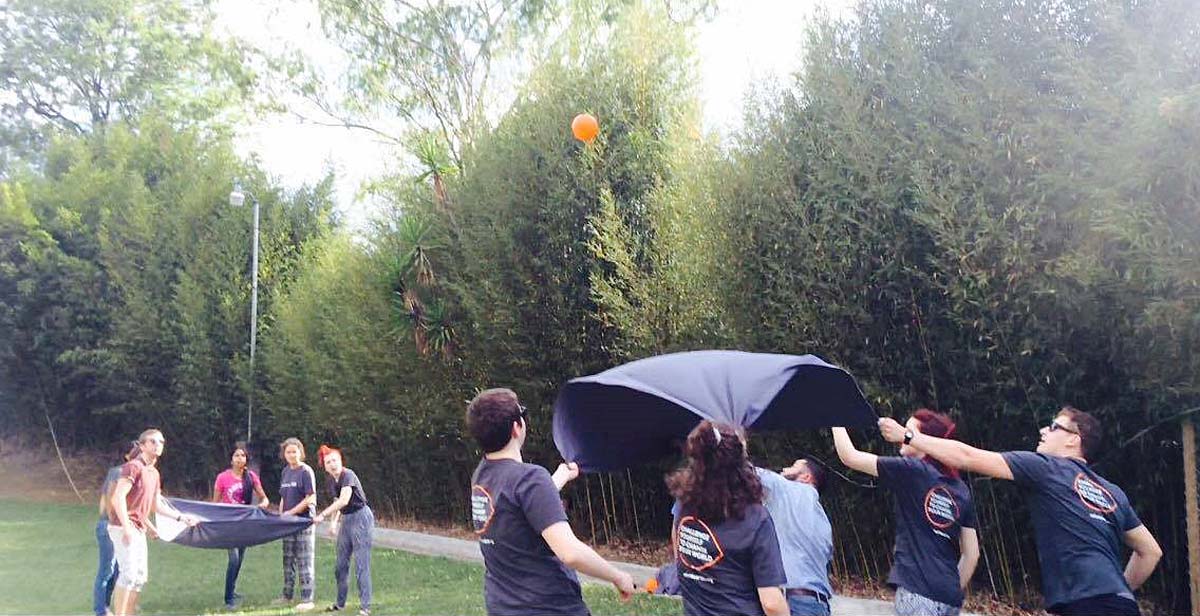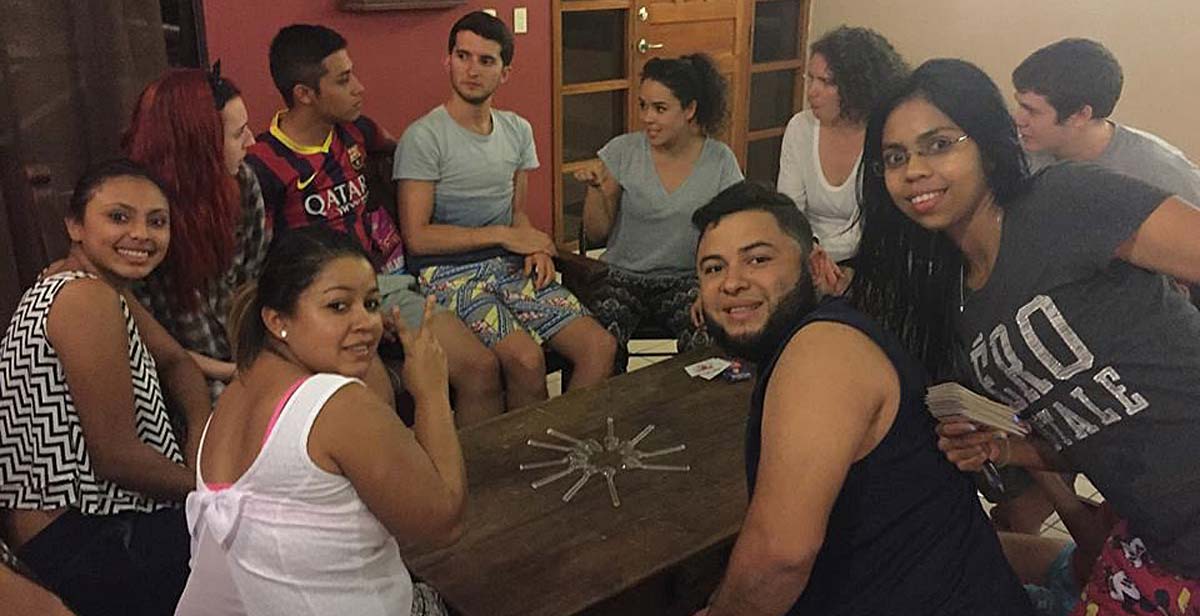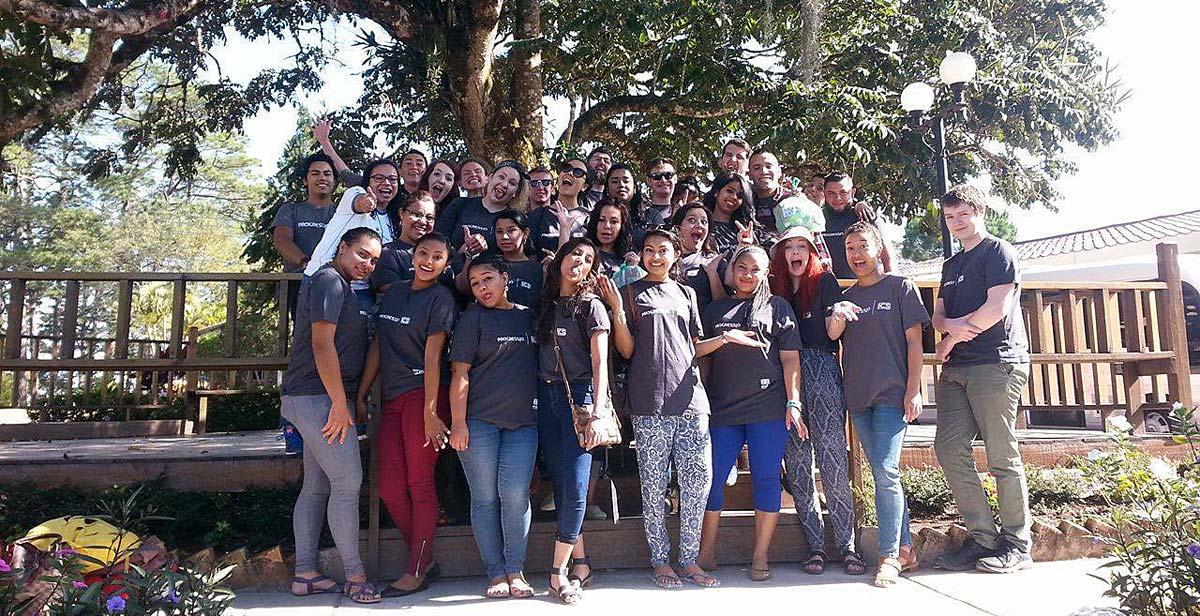The first few hours in my new country consisted of commenting about the humid heat, being relieved to have wifi at the airport and being picked up by the Progressio staff to be told we will be involved in some exciting ice-breakers.
For me, the word ice-breaker naturally makes me groan and fills me with sweats of anticipation of what on earth are people going to make me do. However, I do understand the importance of them, especially when there is an apparent language barrier and you know the successfulness of your project depends on the entire team working well. It is also worth noting, ice-breakers provide a platform in which friendships can be made through shared silly experiences.

When we arrived to El Hatillo for our orientation training, the organisers and team leaders had planned many ice-breakers also known as ‘dinamicas’, a word that becomes very familiar, in order for the national and international volunteers to mix. Activities on the first day included playing with water balloons and a modified group game of rock-paper-scissors, which involved Samson, a lion and Delilah. These games were fun, but I am going to explore an alternative ice-breaker, which I feel worked like a charm. A fun but simple game of cards! Cards are universal, it doesn’t matter if you have a language barrier, as long as you can sort of communicate the rules you’re set to go!
The first night we started with a friendly game, made up with two packs of cards. Laughter erupted pretty soon into the game when we looked into our counterparts’ eyes and called them up on their lie, all the trust already broken but mended with a cheeky smirk. The game was virtually impossible to win, the use of an inappropriate word broke down any barrier with fits of giggles and added to the nationals’ English vocabulary, even if it was for the worst.

For the second night, the game changed to spoons. The nationals were pros at this game but it remained unfamiliar to a few of the UK volunteers. Interest soon grew as cards were being thrown around and plastic spoons thrown across while participants desperately try to grab them. By the next night, most volunteers were involved in this game. Our laughter gained momentum to the point in which we were told off. It’s fair to say ‘cuchara’ soon became an important word, thrown about not only to start a game, but even as a friendly pet name. I think by this point, all ice was broken and friendships solidified.
Written by ICS volunteer Dharel Patel



